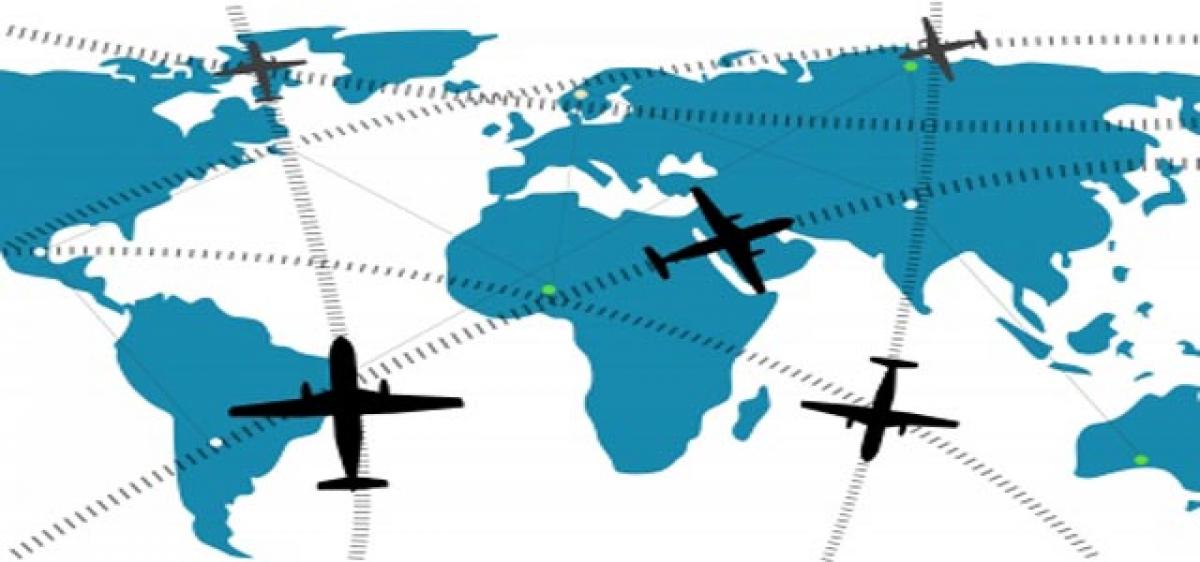Live
- Strive to bag national level Swachh Survekshan award
- India set to pip Japan as world’s 4th largest GDP
- WPI inflation rises to 4-mth high of 2.36% in Oct
- Google Maps Offers Real-Time Air Quality Tracking with New Hyperlocal AQI Feature
- Viraal fever outbreak hits BC Welfare Gurukul School in Satyavedu
- Five-fold jump in ITRs above Rs 50 L in 10 years
- Vizianagaram: 20-year-old man’s organs donated
- Sensex, Nifty edge down in see-saw trade
- RNR 15048 rice beneficial to diabetics
- Elaborate arrangements for Karthika Maha Deepotsavam in Tirupati: JEO
Just In

The Union Cabinet has cleared the way for the much-awaited Air Services Agreement (ASA) between India and Greece. Both countries shall be entitled to designate one or more airline.
The Union Cabinet has cleared the way for the much-awaited Air Services Agreement (ASA) between India and Greece. Both countries shall be entitled to designate one or more airline. The designated airlines of the two countries shall have fair and equal opportunity to operate the agreed services on specified routes.
As per the Route Schedule, the Indian carriers can operate to Athens, Thessaloniki, HerakIion and any 3 points to be specified later in Greece from points in India, whereas the carriers of Hellenic Republic can establish direct operation to 6 metros viz. New Delhi, Mumbai, Bengaluru, Kolkata, Hyderabad and Chennal. Any points shall be available as intermediate and beyond point for the designated carriers of India as well as the designated carriers of Greece.
ASA can spur greater trade, investment, tourism and cultural exchange between the two countries. It will provide enabling environment for enhanced and seamless connectivity while providing commercial opportunities to the carriers of both the sides ensuring greater safety and security.
According to an Australian government website, Bilateral air services agreements/arrangements contain provisions on: Traffic rights the routes airlines can fly, including cities that can be served within, between and beyond the bilateral partners; Capacity the number of flights that can be operated or passengers that can be carried between the bilateral partners; Designation, Ownership and Control the number of airlines the bilateral partners can nominate to operate services and the ownership criteria airlines must meet to be designated under the bilateral agreement.
This clause sometimes includes foreign ownership restrictions; Tariffs—i.e. prices. Some agreements require airlines to submit ticket prices to aeronautical authorities for approval (it is not current practice for Australian aeronautical authorities to require this); and Many other clauses addressing competition policy, safety and security.
The bilateral system has its basis under the Chicago convention and associated multilateral treaties. The Chicago Convention was signed in December 1944 and has governed international air services since then. the convention also has a range of annexes covering issues such as aviation security, safety oversight, air worthiness, navigation, environmental protection and facilitation (expediting and departure at airports), writes Wikipedia.

© 2024 Hyderabad Media House Limited/The Hans India. All rights reserved. Powered by hocalwire.com







